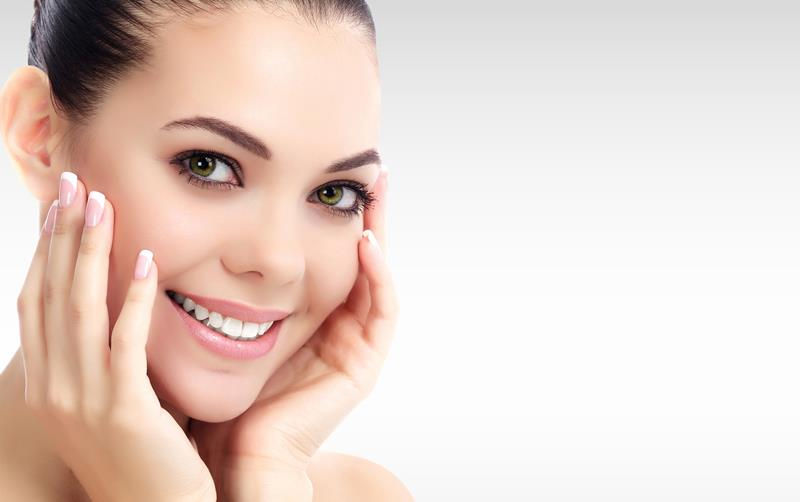Ways to Avoid Eczema Flare-Ups
- cuderm
- Aug 8, 2023
- 3 min read
Updated: Apr 10, 2024
You want to stay comfortable in the skin you’re in. But if you have eczema, comfortable and rash-free skin can be a challenge. In addition to getting treatments to stop the itch, you need to avoid your personal flare triggers. Here’s how.

When you’re one of the 31.6 million women, men, and children in the United States who suffer from atopic dermatitis or another form of eczema, your very own skin makes you uncomfortable. Whether you develop rashes, hives, or blisters, eczema itches, may hurt, and may also create self-consciousness and embarrassment.
So far, no cure exists for eczema. In fact, researchers aren’t 100% sure why some people develop it and others don’t. Although eczema appears to have a genetic component — because it runs in families — an overactive immune system as well as exposure to environmental toxins play roles, too.
Although we offer effective eczema treatments at Central Utah Dermatology in Richfield, Utah, our medical dermatology experts would prefer that you never have to use them. If you have mild eczema, you may be able to avoid your flare triggers, or at least reduce exposure, so that your skin stays moisturized and rash free.
How can you avoid an eczema flare? Following are some common triggers as well as suggestions on how to avoid or downplay them.
Artificial fragrances and colors
The very chemicals that make personal care products and household cleansers appealing can cause skin irritation that brings on an eczema flare. Look for personal care products that are fragrance- and color-free. Choose gentle, organic formulations of:
Facial cleansers
Shower gels or soaps
Shampoos
Conditioners
Moisturizers
Cosmetics
Use fragrance-free laundry detergent and fabric softener, too. Avoid scented candles, chemical air fresheners, and harsh cleansers. Always wear gloves, whether you’re scrubbing a floor or a dish; even eco-friendly, organic cleansers may dry out your hands.
Dry skin
The best thing you can do to protect your skin is to keep it moisturized. That means paying attention to the weather inside as well as outside. On cold days, you may need to dress both for the blustery winds outdoors as well as the stifling, dry artificial heat indoors.
Carry fragrance- and additive-free moisturizers with you at all times, especially if you need to wash your hands a lot, which is very drying. After taking a morning shower or evening bath, pat yourself dry and then apply moisturizer while you still have some moisture on your skin that the cream or lotion can seal in.
Extreme temperatures
If possible, don’t live in climates that are extremely dry and hot or cold and windy. Or, if you must, take measures to protect your skin whenever you’re outdoors. Moisturize, always.
Guard against winter winds with scarves, hats, and coats. Protect yourself from the summer sun with long sleeves and skirts or pants as well as wide-brimmed hats.
Indoors, too, pay attention to the climate. Consider using humidifiers in your home, office, and car. Don’t sit near a fan, air conditioner, or heating unit.
Allergens
Many times, eczema flares when you’re exposed to common allergens such as pollen, dust mites, pet dander, and mold — all of which can accumulate in living spaces and even some working spaces.
Vacuum and change the filters on your air conditioners and vacuums frequently. Consider air purifiers for work and home; change those filters on time, too.
Fido and other furry critters
If you’re allergic to pet dander, you may need to forego the comfort of doggy embraces. However, you may be able to thrive with a hypoallergenic dog breed that has hair instead of fur, such as poodles and Maltese.
Cats can be hypoallergenic, too. You might thrive with fur-free cats (who make you appreciate soft skin), such as Sphinx. Other low-dander felines include Siamese and Russian blues.
Metal
Costume jewelry is often made of metal amalgams that contain nickel or another allergenic metal. Even though 14-kt gold and sterling silver cost more, they may save you money in the end, because you won’t have as many eczema flares to deal with when you wear earrings, necklaces, or bracelets.
Even metal fixtures on clothing could trigger an eczema flare. Beware of zippers and metal buttons, especially if they contact with your unprotected skin.
What goes in your mouth
Even the foods you eat or medications you take can cause an eczema flare. Avoid food that’s likely to cause inflammation in your body. An inflamed body leads to inflamed skin, and could make you break out again. Cut out or reduce:
Trans fats
Sugars
Corn syrup
Processed foods
Processed meats
Artificial ingredients or colors
You could also have a dairy allergy or react to foods that are high in histamines, such as eggplants or tomatoes. Allergy testing can help you identify your personal food triggers.
If you need help calming down an eczema flare, or finding out about other possible disease triggers, contact our Central Utah Dermatology office by using our online booking form.




Comments